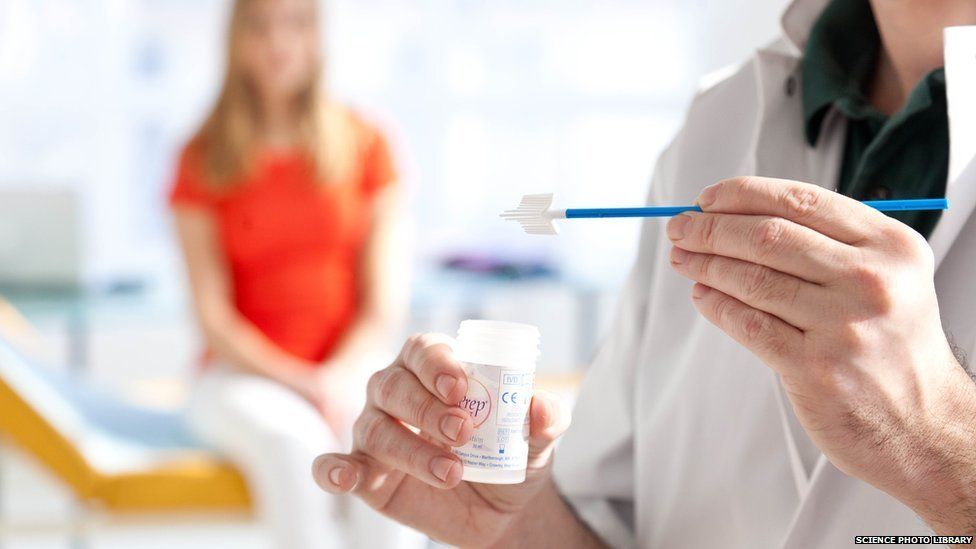
Smear tests check the health of the cervix
By Aileen Moynagh
BBC News NI
About 11,000 women in Northern Ireland have yet to have their smear tests re-checked as part of a major review of cervical screening dating back to 2008.
The Southern Health Trust said it has reviewed more than a third of smear tests.
This followed a highly critical report commissioned by the Royal College of Pathologists (RCPath).
The Southern Health Trust said that as of 1 March, the review has been completed for almost 6,500 of these women (37% of the total to be reviewed).
The trust said that women affected should receive updated letters by post from Tuesday.
In the letter, the trust said it had “taken great care to ensure that every part of the review is robust and accurate and are working to complete the process quickly and also personally inform every woman of their outcome”.
‘Slow start’
Dr Clare McGalie, clinical director for laboratories in the South Health Trust, said they have had “a slow start” but expect to have the review completed by the summer.
“We wanted to get this absolutely right, so a lot has gone into the planning of this,” she said.
Dr McGalie said they are “very grateful” to now have other labs in other health trusts on board to help with the review and they are “now going to be able to go through the slides much faster”.
Image source, Southern Trust
Dr Clare McGalie said that every person whose test is checked will be contacted individually
The Southern Health Trust aims to have all slides reviewed by the end of June and anybody who needs a repeat smear should have it completed by the end of August.
“I want to reassure everybody that when your [smear test] is being reviewed, we will contact you directly and you will have your result when it’s ready,” said Dr McGalie.
The trust said at the start of the review that it anticipated that for the majority of women their smear result would not change.
While it said it was still too early to provide definitive feedback on the overall outcome of the review, to date, “the vast majority of slide review results have been the same as the original one.”
No “high-grade” abnormalities have been found in those already reviewed (high-grade abnormalities are cell changes that could progress to cancer if left unchecked or untreated).
Dr McGalie said the results, so far, have been “very reassuring although it’s too early to tell at the minute”.
She said there have been some low-grade abnormalities found (just over 2%) and those women have been asked to attend for a repeat smear, which will be by primary HPV screening.
In December, Northern Ireland introduced primary HPV cervical screening.
It checks for an infection called human papillomavirus (HPV) – the cause of most cervical cancers.
Image source, Getty Images
Virtually all cases of cervical cancer are linked to high-risk HPV
High-risk HPV can cause cervical cells to become abnormal and potentially develop into cancer over time. .
Virtually all cases of cervical cancer are linked to high-risk HPV.
This newer HPV test is regarded as more accurate at detecting who is a higher risk of developing cervical cancer.
Dr McGalie said: “Where cytology can pick up 16 in every 20 abnormalities, primary HPV screening will pick up 18, so it is a better test.”
If HPV is found to be present following a smear test, the sample will then go for further examination.
This removes the need for all samples to also undergo cytology which is time consuming and clogs up the screening system.
The Southern Trust and the Public Health Agency said they were “sincerely sorry for any distress caused” by the review.
They said they would like again to “reassure those women receiving letters that this review is a precautionary measure to ensure that their previous smear test result they received was correct”.








